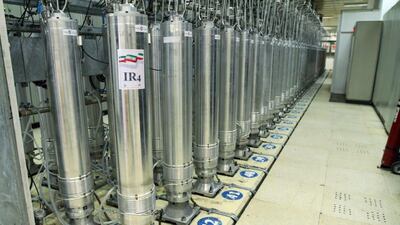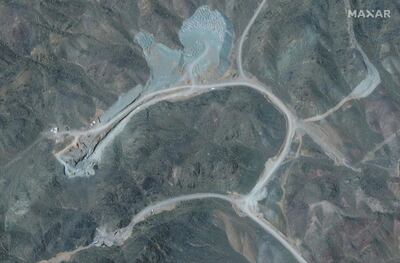On Sunday, Iran's Natanz nuclear plant suffered a major attack. An explosion led to a cut in the power supplying centrifuges that enrich uranium. US intelligence sources have reportedly claimed that the incident, which Iran says was Israeli sabotage, will set back Tehran's nuclear programme by as much as nine months.
Some have interpreted a statement by Israel's defence chief, Aviv Kochavi, that his country's activities in the region are "not hidden from the eyes of the enemy" as an acknowledgment of responsibility. Israeli public radio stations have openly claimed that Mossad, the country's intelligence agency, was a central player in the explosion.
If true, the operation would fit a wider pattern of reciprocal attacks over the years between Iran and Israel. Israel is thought to have hit Iran's nuclear programme before. An attack on the Natanz facility would be an operation as symbolic as it is strategic. The site has been at the centre of ongoing tensions about the nature of Iran's nuclear programme. Tehran claims it has a sovereign right to atomic energy. With Iranian officials having stated publicly that "wiping Israel off the map" is an "achievable goal", its adversaries justifiably worry that Iran's nuclear programme is rather an effort to obtain atomic weapons.
Moderating Iran's nuclear ambitions is the primary goal of western countries at talks taking place in Vienna. Partners in the Middle East are keen to see these talks succeed. However, they stress that a more comprehensive approach is needed, taking into account, among other destabilising policies, Iran's ballistic missile programme and the vast expansion in recent years of its network of proxies.
Countries have a right to defend themselves, but outright attacks on sovereign infrastructure and their potential for hugely dangerous consequences could lead to further escalation. Caution must be the guiding principle as tensions rise.
This is not a call for appeasement, however. Last week, Iran described the Vienna talks as having been "constructive”, but meanwhile Tehran has consistently been raising the stakes. An announcement on Tuesday that Iran will start enriching uranium up to 60 per cent purity is of further concern.
Nonetheless, different approaches among Middle Eastern countries and their western allies do not necessarily lead to contradiction. US President Joe Biden, who is the ultimate shepherd of the western approach to Iran, must proceed in a manner that avoids the region feeling as if it has to defend itself alone. With Iran's programme delayed by months, he can take time to consolidate and not rush into a hasty settlement.
Iran must realise that renewed focus on regulating its nuclear programme is not an attempt to stifle its prosperity. The aspirations of many Iranians to develop renewable energy are laudable, but they can only be realised – especially through nuclear power – if Tehran adopts global standards of transparency. Ending the limits it imposes on International Atomic Energy Agency inspections would be a simple but significant step in the right direction.
Until then, Iran might never reach a stable settlement over its nuclear programme, even if talks in Vienna result in concessions. The incident at Natanz, yet again, exposed Iran's vulnerabilities and the possibility of dangerous escalation.



